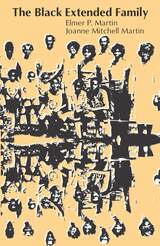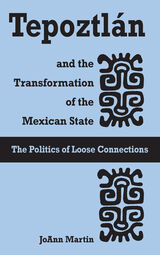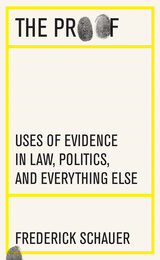2 books by Martin, JoAnn

The Black Extended Family
Elmer P. Martin and Joanne Mitchell Martin
University of Chicago Press, 1980
Misunderstood and stereotyped, the black family in America has been viewed by some as pathologically weak while others have acclaimed its resilience and strength. Those who have drawn these conflicting conclusions have gnerally focused on the nuclear family—husband, wife, and dependent children. But as Elmer and Joanne Martin point out in this revealing book, a unit of this kind often is not the center of black family life. What appear to be fatherless, broken homes in our cities may really be vital parts of strong and flexible extended families based hundreds of miles away—usually in a rural area.
Through their eight-year study of some thirty extended families, the Martins find that economic pressures, including federal tax and welfare laws, have begun to make the extended family's flexibility into a liability that threatens its future.
Through their eight-year study of some thirty extended families, the Martins find that economic pressures, including federal tax and welfare laws, have begun to make the extended family's flexibility into a liability that threatens its future.
[more]

Tepoztlán and the Transformation of the Mexican State
The Politics of Loose Connections
JoAnn Martin
University of Arizona Press, 2005
During the 1980s and ’90s, Mexico weathered an economic crisis, witnessed electoral upheaval, and saw the dismantling of state subsidies to farmers and the privatization of nationally owned industries. This book considers how popular movements found fresh footing in this new political-economic landscape as villagers in Tepoztlán fought to keep communal lands out of the hands of outsiders, the state, and—increasingly—global capitalists. Examining social movement politics from the margins rather than the center, JoAnn Martin revisits the famous Redfield-Lewis debate on Tepoztlán to argue that the gossip seen by Oscar Lewis as undermining community coherence is really a form of political practice. During more than fifteen years of research, she observed the metamorphosis of a movement founded as a revolutionary popular struggle into what she terms a “politics of loose connections,” in which temporary alliances, flexible identities, and shifting rhetoric are adapted to the demands of the moment. Martin examines contemporary land struggles with an emphasis on the Comité para la Defensa de Tierra and its attempts to weave together strands of an invented tradition, contemporary agrarian reform law, and revolutionary ideology. She shows how Tepoztecan politics borrows discourses from the Mexican state; she then tells how this process shaped local politics in the midst of the contested 1988 national presidential election when local actors elaborated a discourse of democracy as a technique for disciplining gossip, and in 1991 when Tepoztecans began to draw on the support of international environmental NGOs. Throughout her analysis, Martin explores how Tepoztecan politics unfolds in the climate of mistrust first nurtured by the role of the state in local politics and later by the demands of working with U.S. and Western European environmentalists. Martin shows that the politics of loose connections is above all else a style of political participation that has proved adaptive in the contemporary political landscape, and that understandings of politics have been dogged by a conception of connections that may well be obsolete in the contemporary world. Her study is a balanced re-evaluation of Tepoztlán that reveals how politics succeeds through loose connections, a strategy that may be instructive for others seeking to survive in either local or global coalitions.
[more]
READERS
Browse our collection.
PUBLISHERS
See BiblioVault's publisher services.
STUDENT SERVICES
Files for college accessibility offices.
UChicago Accessibility Resources
home | accessibility | search | about | contact us
BiblioVault ® 2001 - 2024
The University of Chicago Press









